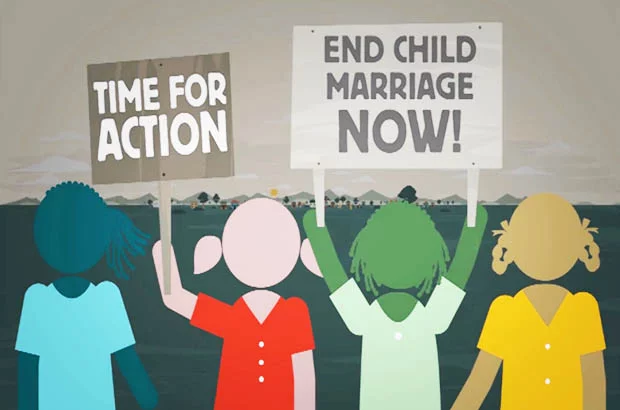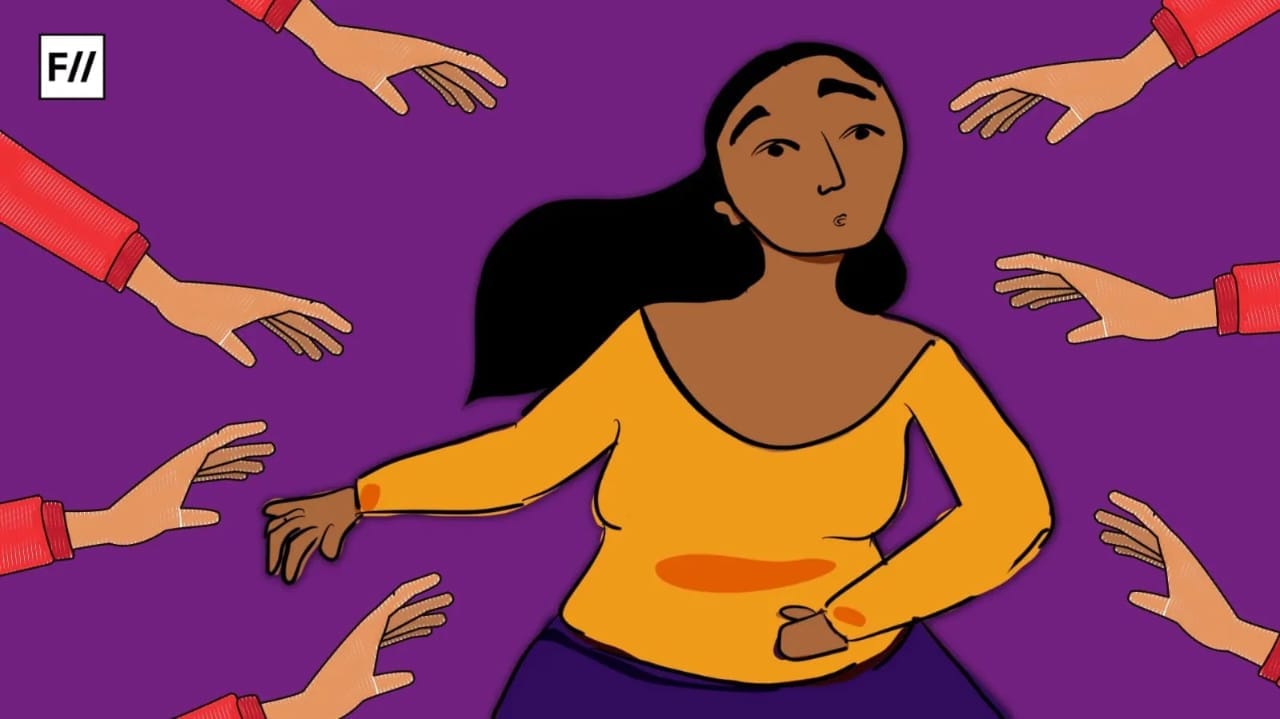India is a beautiful country with a myriad of cultures, religions, and communities. We as Indians take pride in our famous expression “Unity in Diversity”, where “Diversity” represents this social stratification found among our people.
The biggest division among the population of India is the caste system, which was introduced around 1500 BC. These castes also have sub-castes within them, drawing more differences among themselves. The grand tradition of arranged marriages or what the West calls “The Big Indian Wedding” in the Indian community thus become the markers and enablers of the caste hierarchy.
This practice of marrying someone from one’s own community, clan, or tribe while rejecting others as unsuitable is known as endogamy. Endogamy has been prevalent in Indian society for the past 2000-3000 years and is still widely accepted as a legitimate requirement for getting married. It can be found from the smallest tribes to the most elite groups in our society, where being from that particular caste is of highest priority when looking for a partner, while other aspects are taken into consideration secondarily, or sometimes not at all.
These endogamous marriages are a form of arranged marriages, where the bride and the groom, belonging to the same caste, are happy to tie the knot after getting approval from both their families. Since arranged marriages have been a part of our culture for centuries, it is often considered shameful to marry someone that one’s parents haven’t chosen for them. When someone ends up rejecting the idea of forced marriage or arranged marriage, it quickly gets seen as a personal offence to the parents, creating tension within the family.
Also read: Can An Unequal Marriage Be The Foundation Of A Family?
In cases where parents do not try to understand their children, they are seen getting pressured to get married regardless of their personal choices. This is the point where you can clearly draw the distinction between the concept of arranged marriage and forced marriage. Quite similar to the differences between consent and coercion.
In other cases, where parents do not try to understand their children, they are seen getting pressured to get married regardless of their personal choices. This is the point where you can clearly draw the distinction between the concept of arranged marriage and forced marriage. Quite similar to the differences between consent and coercion.
When a marriage is arranged, it is important to have both the parties’ full consent. Consent is always a loud and clear YES, without any external factor’s influence and entirely a person’s own decision. If either of the bride or the groom, or even both of them are reluctant to go through the marriage, it is a forced marriage. While child marriages are definitely in violation of the children’s agency, consent and person, adults too are forced into marriages they do not want to be in. So as to uphold the rigid and regressive caste structures, notions such as love jihad etc. are employed by the conservative, fascist patriarchs in the society.
While child marriages are definitely in violation of the children’s agency, consent and person, adults too are forced into marriages they do not want to be in. So as to uphold the rigid and regressive caste structures, notions such as love jihad etc. are employed by the conservative, fascist patriarchs in the society.
As a 24-year-old woman from a conventionally well-to-do family, I have had several financial privileges growing up, yet, the day I completed my graduation, the first thing I heard after “Congratulations” was “Now it is your time to get married.”
This did not come as a shock to me. In the OBC caste community that I belong, there are also sub castes. My uncle, the patriarch of my joint family is the head of our sub caste community of my city, and hence endogamy was unsurprisingly and sufficiently emphasised on. My family is traditionally orthodox but I still had some hope for my voice to be heard because most of my family members are well educated.
Since my graduation, the subtle to loud coercion manifested in various ways to get me to agree for marriage.
Simultaneously, my cousin brother who is also 24, was told that it is time for him to get married as well. He had a girlfriend at that time, so he was reluctant to agree to an arranged marriage just as I was. In my case, my opposition was loud and clear, causing me to suffer at the hands of my family’s manipulative tactics in a harsh manner, to the point of getting death threats and violence, while my cousin couldn’t oppose as clearly as he wanted to, suffering a comparatively less harsher manipulation to get him to agree.
My cousin eventually gave in to their wishes as he had little to nothing to lose as a man. He gets to stay at his own home, he wouldn’t have to change his routine or career after marriage, and he still gets to have a right to his father’s name, property and status.
In my case, I had everything to lose as a woman. I would’ve had to change the way I act, dress, and speak. I would’ve had to agree to what my in-laws would decide about me studying further and having a career or not, about having children, about each and every part of my life.
I was and still am absolutely against giving up my autonomy, which none of my family members can fathom.
Why is it that a person’s wishes are not given importance over family status and expectations?
With a sense of entitlement over their children’s lives, parents often cross boundaries that end up compromising their mental health and in some cases physical health as well.
In India, forced marriages are illegal under Article 15 of the Indian Contract Act 1872. It is a violation of human rights. People often find it difficult to find their way out of such situations.
In 2017, India was among the top ‘focus countries’ in the UK when it comes to the issue of forced marriages. Out of all the cases handled by the Forced Marriage Unit UK from around the world in 2019, 80% of victims were women, 13% were men, and the gender of the remaining were unknown.
The figures are just the tip of the iceberg as most cases go unreported.
If you know someone who is facing a situation of forced marriage or you are the one going through these problems, here are some legal steps you can take to avoid it.
Also read: Why Endogamous Marriages Could Make Us An Unhealthy Population
- Contact the women cell of the nearest police station: If you are a woman facing the threat of a forced marriage, you can approach the Women Cell of a local police station in your city. You can file a complaint against your parents as well.
- Contact the state commission for women: Additionally, you could also reach out to the National Commission For Women (NCW) where you can file complaints if you are being forced to marry.
- File a case of domestic violence under PWDVA, 2005: You can also file a complaint for domestic violence against you family members. The authorities could issue a temporary restraining order to ensure the family members from getting you forcefully married.
- Contact a lawyer: You can hire a lawyer to file a complaint with the authorities to fight for your rights. Furthermore, the state commissions also arrange for pro bono services and cousel of lawyers for the complainants.
- File a suit for annulment of marriage in Family court/District court: If your marriage has already taken place, it can be annulled by filing a suit in a family or district court to declare the marriage as null and void.
- Contact NGOs in your city or the ones functioning at a national level: There are many NGOs dedicated to similar causes who can guide you through the legal proceedings and sometimes also provide counselling for your mental well being.
Mrudavi is a part time wordsmith and a full time creator. Her love for nature is inherent as she continues to cultivate and empower it through her multifarous endeavours. She can be found on Instagram, LinkedIn and Facebook.
Featured Image Source: Shreya Tingal/Feminism In India
About the author(s)
Forget textbooks, Mrudavi got hooked on writing through her childhood obsession with fiction novels. Now, she tells engaging stories that address real-world topics with a touch of her experiences. When the writing bug takes a break, Mrudavi can be found curled up with a good book or with her favourite people, fueling her imagination with endless cups of iced lattes.






Nice article. However, there is one paragraph I do not agree with as it does not make logical sense.
The second paragraph of the below quotes does not quite make sense.
“Out of all the cases handled by the Forced Marriage Unit UK from around the world in 2019, 80% of victims were women, 13% were men, and the gender of the remaining were unknown.
The figures are just the tip of the iceberg as most cases go unreported.”
Not able to relate it to the previous paragraph. It can be related to the previous paragraph only if the previous paragraph had had absolute number instead of percentages.
If you are trying to imply that the number of women affected are even more through your words “tip of the iceberg” it does not fit as 80% is already represents a huge volume. So it cant be a “top of the iceberg”.